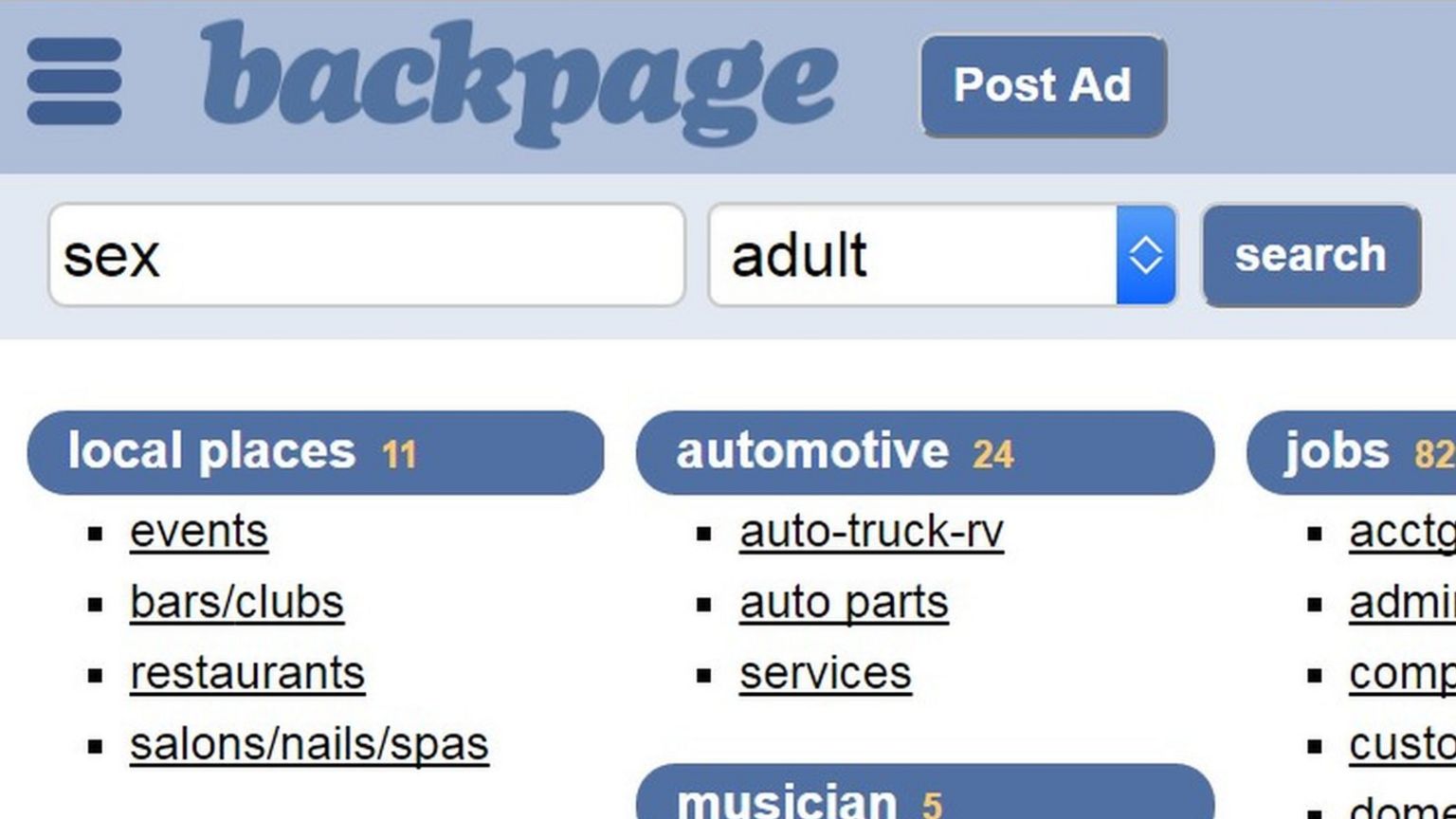Backpage Trans: This phrase evokes a complex and often troubling history. It unveils a hidden chapter in the lives of transgender individuals, many of whom used the now-defunct Backpage.com to advertise their services. This exploration delves into the platform’s impact, examining the legal battles, the inherent vulnerabilities faced by transgender sex workers, and the lasting consequences on the community’s visibility and economic stability.
We’ll navigate the murky waters of online sex work, highlighting the precarious balance between freedom of expression and the fight against exploitation.
From the initial advertisements that appeared on Backpage, to the site’s eventual shutdown and the legal ramifications that followed, the story of Backpage Trans is a multifaceted one. It’s a story of survival, resilience, and the ongoing struggle for recognition and safety within a system often ill-equipped to protect its most vulnerable members. We’ll examine the evolution of advertising strategies, the rise of online platforms as a double-edged sword, and the urgent need for comprehensive support systems for transgender individuals involved in sex work.
Backpage Trans: A Complex Legacy
Backpage.com, once a prominent online classifieds site, played a controversial role in the lives of transgender individuals, particularly those involved in sex work. Its existence presented a complex interplay of opportunity, exploitation, and legal battles, leaving a lasting impact on the transgender community and prompting critical discussions about online safety, legal frameworks, and the vulnerabilities of marginalized groups.
Historical Context of Transgender Individuals on Backpage
Transgender individuals utilized Backpage for advertising sex work services from its early years. Advertisements often included identifiers such as “trans,” “TS,” or other coded language to indicate gender identity. Over time, the sophistication and visibility of these advertisements varied, influenced by both the platform’s policies (or lack thereof) and evolving societal attitudes towards transgender individuals and sex work.
Evolution of Transgender Advertisements on Backpage
Initially, advertisements were often basic and discreet. As time progressed, some advertisements became more explicit, including photographs and detailed descriptions of services. The language used also evolved, reflecting changes in terminology and societal awareness surrounding transgender identities. This evolution was partly driven by technological advancements, increased online anonymity, and the changing dynamics of the sex work industry itself.
Timeline of Significant Events
A detailed chronological account of key events related to transgender individuals and Backpage is crucial to understanding the platform’s impact. This timeline would include dates of significant legal actions, changes in platform policies concerning transgender advertisements, and notable instances of violence or exploitation reported in relation to transgender sex workers using the site. Such a comprehensive timeline requires extensive research and is beyond the scope of this concise overview.
However, key dates related to the broader legal challenges against Backpage, such as its eventual shutdown, would be pivotal components.
Legal Ramifications and Crackdowns on Backpage
Backpage faced numerous legal challenges, primarily centered on allegations of facilitating sex trafficking. The site’s connection to the exploitation of transgender individuals became a significant aspect of these legal battles. The subsequent shutdown of Backpage had a profound impact on the transgender community, particularly those reliant on the platform for income and visibility.
Legal Challenges and Impact on the Transgender Community
The legal battles against Backpage highlighted the difficulties in regulating online platforms and addressing the complex intersection of sex work, trafficking, and transgender identities. The site’s closure left many transgender sex workers without a readily available platform for advertising their services, potentially increasing their vulnerability to exploitation and violence. The lack of alternative platforms with comparable reach further exacerbated this situation.
Comparison with Other Online Platforms
The legal responses to Backpage can be compared and contrasted with the regulatory approaches adopted towards other online platforms, including social media sites and dating apps. This comparison would reveal the inconsistencies and challenges in creating a unified legal framework to address online sex trafficking and the protection of vulnerable individuals, including transgender sex workers.
Key Legal Cases and Outcomes
| Case Name | Date | Outcome | Impact on Transgender Individuals |
|---|---|---|---|
| (Example: Case Name 1) | (Example: MM/DD/YYYY) | (Example: Conviction/Acquittal/Settlement) | (Example: Increased vulnerability/Improved safety measures/No significant impact) |
| (Example: Case Name 2) | (Example: MM/DD/YYYY) | (Example: Conviction/Acquittal/Settlement) | (Example: Increased vulnerability/Improved safety measures/No significant impact) |
| (Example: Case Name 3) | (Example: MM/DD/YYYY) | (Example: Conviction/Acquittal/Settlement) | (Example: Increased vulnerability/Improved safety measures/No significant impact) |
Safety and Vulnerability of Transgender Sex Workers
Transgender sex workers face unique vulnerabilities, including higher rates of violence, discrimination, and exploitation. These vulnerabilities were often exacerbated by their use of platforms like Backpage, where they lacked adequate protection and support.
Vulnerabilities and Exploitation Statistics
While precise statistics are difficult to obtain due to the clandestine nature of sex work and underreporting, existing research indicates significantly higher rates of violence and exploitation among transgender sex workers compared to cisgender sex workers. These statistics underscore the urgent need for targeted support and intervention strategies.
Support Systems and Resources, Backpage trans
A range of organizations offer support and resources to transgender sex workers, including assistance with housing, healthcare, legal aid, and exit strategies from the sex industry. However, access to these resources often remains limited due to stigma, discrimination, and a lack of awareness.
Hypothetical Public Awareness Campaign
A hypothetical public awareness campaign could focus on raising awareness about the vulnerabilities of transgender sex workers, promoting safer sex practices, and connecting individuals with available support services. The campaign would emphasize empathy, understanding, and a commitment to fostering a more inclusive and supportive environment.
The Impact on the Transgender Community: Backpage Trans
Backpage’s existence had a multifaceted impact on the transgender community, influencing its visibility, economic circumstances, and psychological well-being. The platform’s role in both enabling and exacerbating vulnerabilities requires careful consideration.
Societal Impact and Economic Circumstances
Backpage provided a platform for transgender individuals to gain some level of economic independence, albeit under precarious conditions. However, its association with sex work also contributed to negative stereotypes and stigmatization within broader society. The economic reliance on such platforms also created significant vulnerabilities.
Psychological Impact of Using Such Platforms
The psychological toll on transgender individuals using platforms like Backpage for sex work can be substantial, encompassing issues such as trauma, isolation, and mental health challenges. The constant risk of violence and exploitation significantly impacts their well-being.
Comparison with Other Platforms
Comparing the experiences of transgender sex workers on Backpage with those on other online platforms highlights the diverse range of risks and opportunities presented by different technological environments. Some platforms may offer greater anonymity or protection, while others may expose individuals to higher levels of risk.
Alternative Platforms and Resources
Following Backpage’s closure, transgender individuals sought alternative platforms for advertising services or connecting with clients. However, these alternatives often lack the same reach and may present different safety and security concerns.
Alternative Platforms and Their Features
A range of alternative platforms emerged, each with its own set of features and risks. Some may offer enhanced privacy features, while others may lack adequate safeguards against exploitation. A detailed comparison of these platforms would necessitate extensive research and is beyond the scope of this overview.
Resources and Support Networks
Numerous organizations provide crucial support and resources to transgender individuals seeking to leave the sex industry or improve their safety and well-being. These resources often include job training, housing assistance, mental health services, and legal aid.
Reputable Organizations Providing Assistance
- (Example: Organization 1)
- (Example: Organization 2)
- (Example: Organization 3)
The Role of Technology and Online Spaces
Technology has profoundly shaped the experiences of transgender individuals involved in sex work, offering both opportunities and significant risks. The ethical considerations surrounding online platforms and their impact on vulnerable populations are paramount.
Expand your understanding about zillow kent county mi with the sources we offer.
Technology’s Impact on Safety and Well-being

Online platforms can facilitate connections and economic opportunities for transgender sex workers, but they can also increase their vulnerability to exploitation, violence, and discrimination. The lack of adequate regulation and protection in online spaces exacerbates these risks.
Ethical Considerations and Online Safety Regulations

The ethical considerations surrounding online platforms and their responsibility in protecting vulnerable populations are crucial. The need for stronger online safety regulations and protections, particularly for marginalized groups like transgender sex workers, is undeniable. A proactive approach is necessary to balance freedom of expression with the safety and well-being of individuals.
The legacy of Backpage Trans serves as a stark reminder of the complex intersection of technology, sex work, and the transgender community. While Backpage’s closure marked a significant moment in the fight against sex trafficking, it also highlighted the ongoing need for safer, more supportive online spaces and tangible resources for transgender individuals. The conversation continues—a crucial dialogue about online safety, legal reform, and the imperative to create a world where vulnerability doesn’t equate to exploitation.
Understanding this history is vital to building a more equitable and just future.


